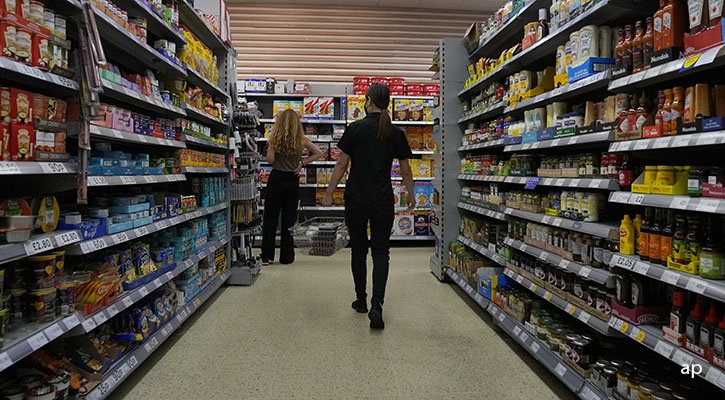
The UK inflation rate is expected to have risen in July, in figures released on Wednesday, August 14 by the Office for National Statistics.
According to FactSet consensus, the headline Consumer Price Index is forecast to have risen by 2.3% on an annual basis last month, a rise from 2% in June. Such a move would push the CPI rate above the Bank of England’s official inflation target of 2%, which was achieved in May and June – and opened the way for the first interest rate cut since March 2020 at its last meeting.
This increase in the inflation rate has been predicted by officials this year as favourable comparisons with energy prices in 2023 drop out of the monthly figures.
Core CPI, which excludes more volatile energy and food prices, will receive as much focus as the headline CPI figure. This measure was forecast to fall to 3.4% in June but remained at 3.5%, the same as in May. In July, the expectation is that core CPI will ease to 3.3%. Services inflation is also a worry for the BoE, remaining at 5.7% last month, and policymakers will be keen to see this figure fall back too.
August's Interest Rate Cut
Since the last inflation print, the Bank of England has cut interest rates from 5.25% to 5%, a move expected by financial markets. It also released its latest economic forecasts on the August 1 meeting. In these, the Bank forecasts a rise in CPI inflation from its current level of 2% to about 2.75%. This is then expected to fall back in 2025 and 2026 as the “restrictive stance” of monetary policy – i.e. expensive money – continues to have an impact. A tepid economy and labour market “slack” will mean weaker pay settlements. These scenarios are subject to change, the Bank says. And that means caution will persist in rate setting. Financial markets are pricing in the next cut for November, but one sentence from the latest report hints that the Bank has not yet declared victory against inflation, which has fallen from more than 11% in the space of two years:
“Monetary policy will need to continue to remain restrictive for sufficiently long until the risks to inflation returning sustainably to the 2% target in the medium term have dissipated further.”
In all of the Bank’s 2025 inflation forecasts, CPI remains above the 2% target in a year’s time, before falling below target in 2026.
Bank members look at a broad range of data before making decisions on monetary policy, with unemployment and wage growth in the mix. Both data sets are released the day before the inflation figures, on August 13. The unemployment rate is expected to have remained steady at 4.4% in the three months to June, while average weekly earnings is forecast to have grown by 5.4% in June, down from 5.6% in the previous month.
What Drove Inflation This Summer?
What else was going on in the UK economy in July that could have stimulated demand for certain goods and services? While there was no "Taylor Swift effect" in July, the month did feature the European football championship, the start of the Paris Olympics and heatwaves that would have boosted sales of seasonal products.
August data, due mid-September, could include the social unrest sweeping the country, which is already affecting retail footfall according to early estimates. On a brighter note, Taylor Swift’s second leg of her UK tour kicks off again in August.
Currency swings could be another factor in August inflation figures. The pound had a good run in the buildup to the July election, rising from EUR 1.15 at the start of 2024 to EUR 1.19 and USD 1.27 to USD 1.30, before falling sharply in early August. A stronger currency tends to make imports cheaper and exports more expensive – and vice versa.
Another factor that will impact inflation in the coming years is the change of government: Labour took control on July 5 after 14 years of Conservative rule. With a massive majority, the new Starmer administration has a substantial mandate to implement a range of new fiscal measures. New chancellor Rachel Reeves has already floated the idea of upcoming tax rises, which would mean less money for consumers to spend. Conventional economic policy suggests this will act as a brake on demand and lead to lower inflation.



























